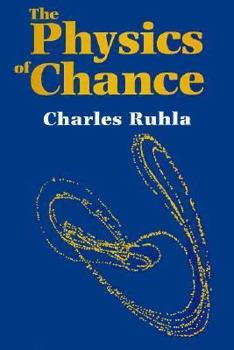The Physics of Chance: From Blaise Pascal to Niels Bohr
Select Format
Select Condition 
Book Overview
This work offers a clear, much-needed introduction to the ideas of randomness that are central to modern physics. These are the concepts that have been instrumental in overthrowing the notion of the classical "clock-work" universe of earlier centuries. The author shows how the laws of probability and statistics were developed by such mathematicians as Fermat, Pascal, and Gauss, and how they received their first major application in physics in the kinetic theory of gases developed by Maxwell and Boltzmann. Here the use of statistics was necessary because the number of particles involved is too great for a deterministic calculation. But soon the mathematician and physicist Poincare demonstrated the unpredictability of certain systems containing only a small number of bodies, because of extreme sensitivity to initial conditions. He thus became a founder of chaos theory. Finally, with the advent of quantum theory, physics--and reality itself-- seemed to be based on an essential randomness, an idea that was debated by Bohr and Einstein until the end of their lives. Only recently, in the experiments of Alain Aspect, has a convincing demonstration been given the inescapable randomness of quantum theory is a fact of nature. The author skillfully guides the reader through these developments and provides mathematical details in appendices, offering an accessible introduction to the modern physicist's conception of the world of cause and chance. Of special interest to physics students and teachers, the book will also appeal to anyone seeking a better understanding of modern physics, quantum theory, and the concept of chaos.
Format:Paperback
Language:English
ISBN:0198539770
ISBN13:9780198539773
Release Date:December 1992
Publisher:Oxford University Press, USA
Length:240 Pages
Weight:0.05 lbs.
Dimensions:0.5" x 6.2" x 9.2"
Related Subjects
Math Mathematics Physics Science Science & Math Science & Scientists Science & Technology StatisticsCustomer Reviews
0 rating





